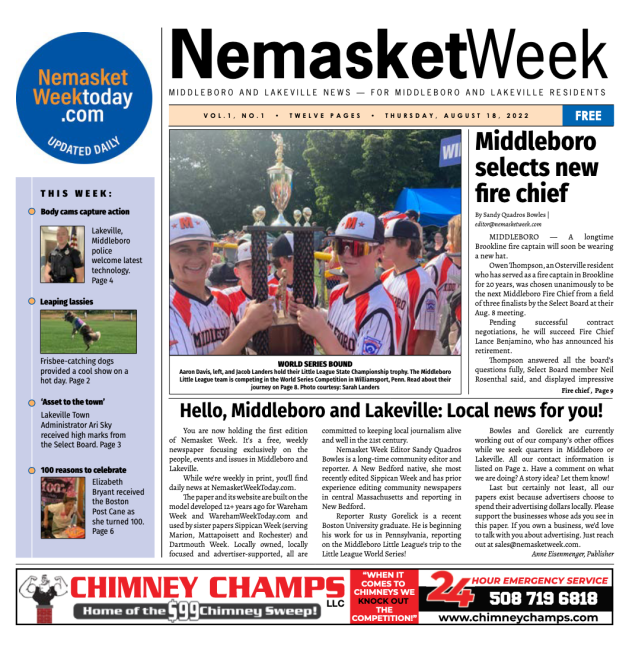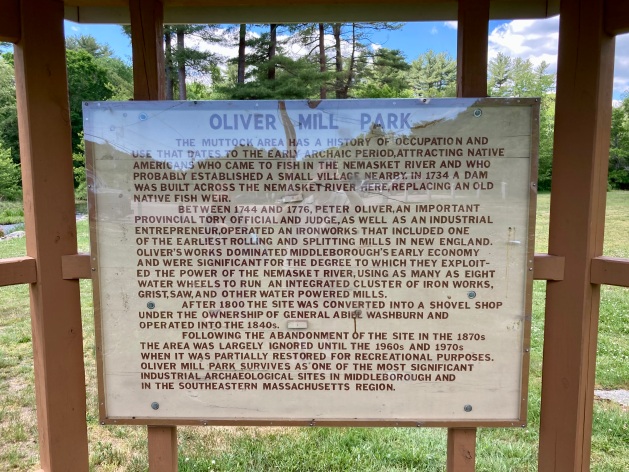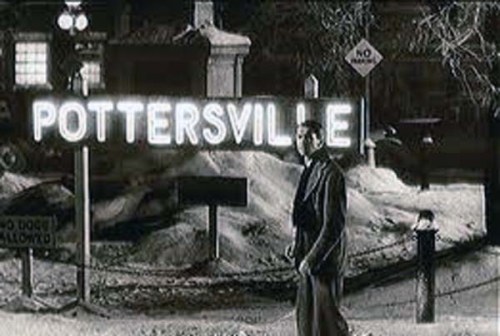
Attorney General Andrea Campbell. Photo (cc) 2022 by Dan Kennedy.
A past winner of a New England Muzzle Award is in the news, while a more ambiguous case is making its way through the federal courts.
First, Massachusetts Attorney General Andrea Campbell recently issued guidance stating that local elected officials have no fear of violating the state’s open meeting law if they take part in re-election activities such as debates or candidate forums where they discuss pending municipal business. Campbell’s decision follows a ruling by our Muzzle winner, Waltham City Solicitor John Cervone, that such activities would be “potentially problematic,” raising the specter that officials running for re-election would be barred from any substantive discussion of local issues.
 Campbell’s guidance was hailed in a Boston Globe editorial, which noted that a similar situation had arisen in Newton. The editorial observed that Campbell gave her blessing even to situations at which a quorum of officials are present (for instance, three members of a five-member selectboard) “as long as they address their answers to the public, not to each other.” Campbell’s guidance reads in part:
Campbell’s guidance was hailed in a Boston Globe editorial, which noted that a similar situation had arisen in Newton. The editorial observed that Campbell gave her blessing even to situations at which a quorum of officials are present (for instance, three members of a five-member selectboard) “as long as they address their answers to the public, not to each other.” Campbell’s guidance reads in part:
The Open Meeting Law does not restrict an individual’s right to make comments to the general public, particularly as a candidate for office. Rather, it restricts communication between or among a quorum of a public body outside of a meeting; thus, the intent of the public official is an important consideration.
The Waltham and Newton restrictions were absurd, and Campbell was right to set them aside.
Second, Liam Morrison of Middleborough, Massachusetts, who as a seventh-grade student last year was banned from wearing an anti-transgender T-shirt to school, has taken his case to the U.S. Court of Appeals for the First Circuit after losing his bid to overturn the ban in federal district court. Morrison wore a shirt that said “There Are Only Two Genders.” And when that didn’t pass muster, he returned to school with a T-shirt that said “There Are [Censored] Genders.” That earned him a trip back home as well.
According to a report by Reuters, the appeals court seemed unimpressed with Morrison’s free speech argument at a recent hearing. Here’s part of the Reuters article:
U.S. Circuit Judge Lara Montecalvo contrasted the shirt with a brochure handed out by students expressing a particular message, saying unlike those pieces of paper, a student could not throw away the shirt that Morrison was wearing.
“A T-shirt that is worn all day is worn all day,” she said. “You have to look at it, you have to read it.”
Deborah Ecker, a lawyer for the Middleborough School Committee, said the school officials’ actions were motivated by concern for the mental health of LGBTQ students, “who are captive in this classroom looking at it.”
Boston Globe columnist Jeff Jacoby sides firmly with Morrison, writing:
In court filings, Middleborough’s lawyers argue that the school was entitled to suppress Morrison’s message out of concern that it could have led to “disruption.” Yet contrary messages are permitted. No discipline was imposed when a student came to class in a “He she they, it’s all okay” T-shirt. School administrators cannot have it both ways, allowing students to express the popular side of a debatable issue but silencing those who disagree because their opinion might provoke an angry reaction. The First Amendment does not bow to the heckler’s veto.
My own opinion is that this is not as simple as Jacoby makes it seem. As Jacoby himself notes, public school students have limited free speech rights when they are on school grounds. And though there’s a certain logic to the either/or choice Jacoby presents, it doesn’t hold up to closer scrutiny. An anti-LGBTQ message expresses animosity toward specific people, including fellow students whose orientation is something other than he or she. A pro-LGBTQ message affirms everyone’s humanity without — and this is the key — expressing any animosity toward people like Morrison who hold a different viewpoint.
Given that difference, it seems to me that Middleborough school officials got it right. Based on the Reuters report, it sounds like the appeals court is likely to agree when it issues its ruling.













